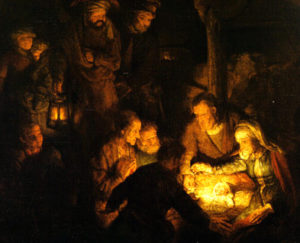Background. The last verse of Psalm 23 is a ringing statement of faith! “Surely” the Psalmist writes. Goodness and mercy- some versions read goodness and love, but both reflect back to the central concept of God’s caring for us. This rare imagery of God as a shepherd has resonated with Jews and Christians for thousands of years. As we read on in the Psalms about the awesome and frightening power of God, we need to remember that this is part of that story as well. It provides a balance and, like the blind men and the elephant, gives us another piece of God to touch.
Reading Psalm 23:6 Surely goodness and mercy shall follow me all the days of my life: and I will dwell in the house of the Lord for ever.
Reflection. Who is the Psalmist talking to? This Psalm is not addressed to God as a prayer- or to others- there are no “you”s in here. Obviously, the Psalmist meant for this to be read by others, but when you read it is referring to “me” and “I”. Perhaps this is overthinking it, but could this be something meant to be said to yourself, a confirmation and statement of belief? Even when it may be more of a hope than a faith, it is a statement of our dearest wish from our God. Try reading it out loud so you hear the words spoken by you for you.
